I've reviewed 70+ laptops and these are my top 7 laptops for college students
We've handpicked the best laptops for college students
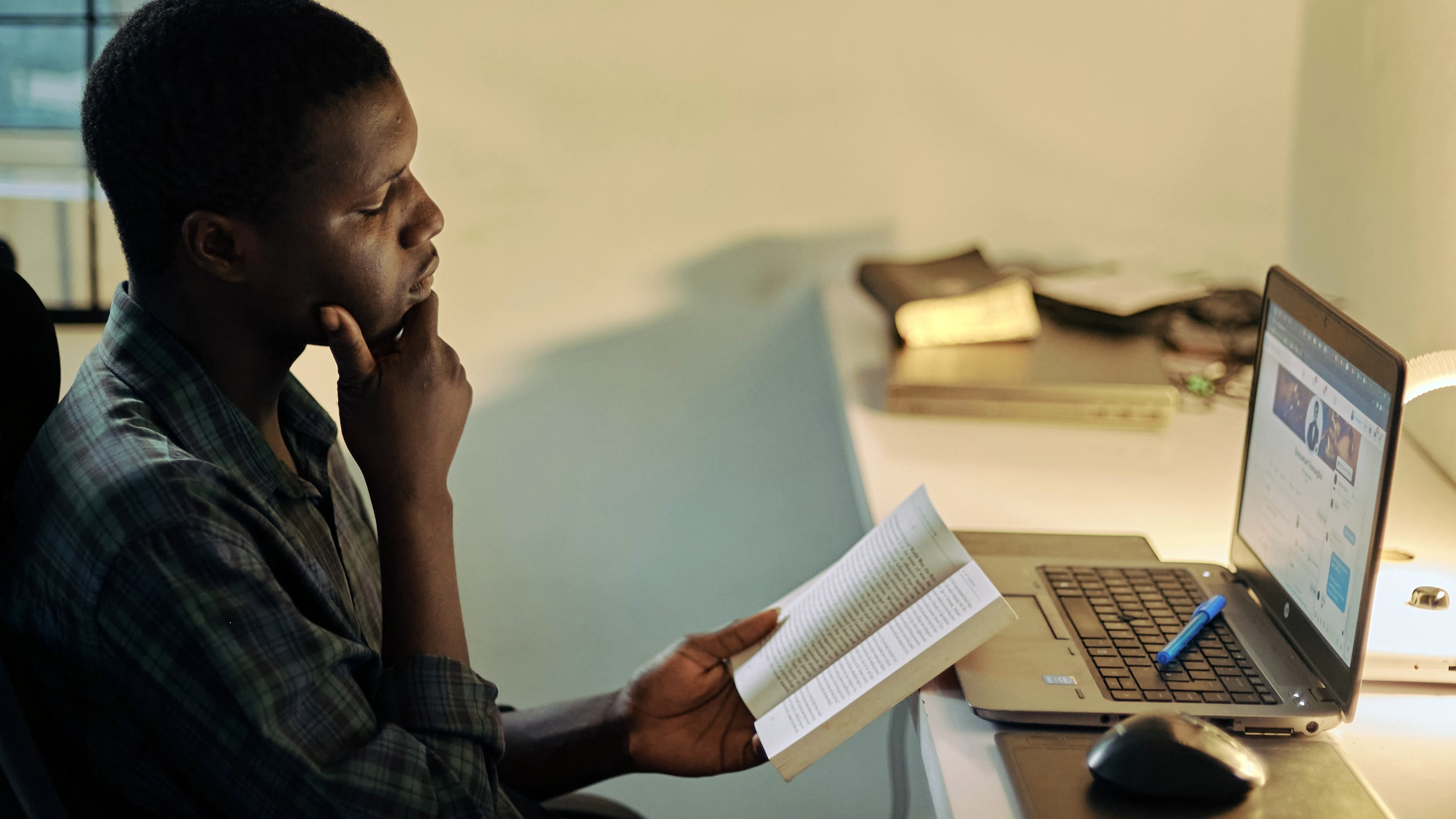
I remember preparing for college, and the stress of finding the perfect laptop for my studies. You need advice on what will meet the demands of your studies — be it an ultra thin and light for essays or a power-packed machine for intense work — and all you're left with is some shop assistant just asking "what do you want the laptop to do?"
This decision-making process is a difficult one, so I'm here to help you find the perfect option for you. We review all the latest and greatest laptops (in my career, I've reviewed a nice 69), and even put them through strenuous tests in our performance lab. That means we can confidently put our stamp of approval on every single one, as they have been personally tested by me and my team.
So whether you need a machine that is capable of handling web browsing and typing (for those essay-centric degrees) or you're looking for something more specialized for the likes of creative arts or advanced programming, these laptops are going to be best for college use.
Based on that experience, here are the best laptops for college students that I recommend!
The quick list
In a hurry? Here's a brief overview of the laptops on this list, along with quick links that let you jump down the page directly to a review of whichever laptop catches your eye.
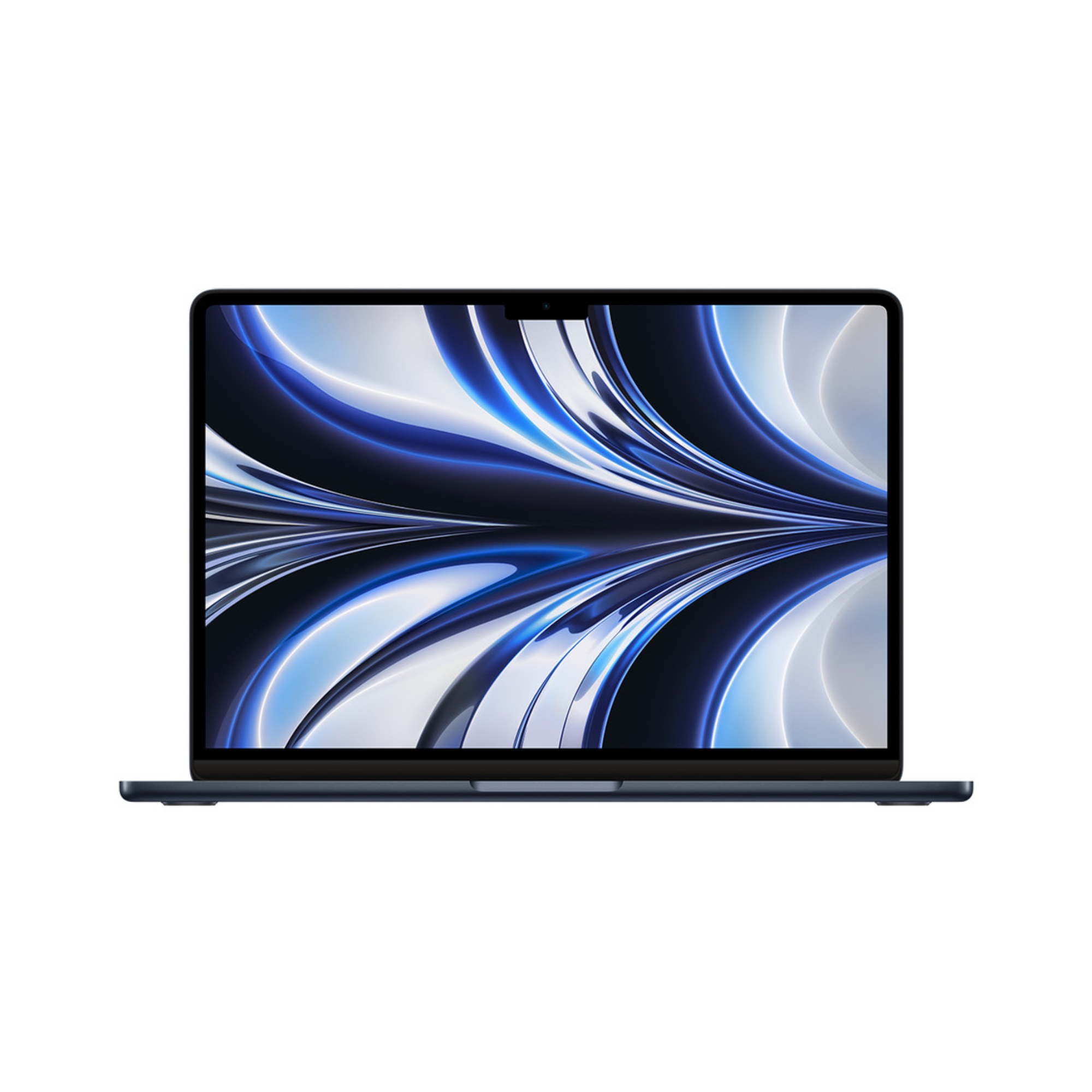
The MacBook Air M3 is what we most often recommend to students. You get fantastic performance from the new M3 chip, a bright display and more than 15 hours of battery life in an ultraportable package that's easy to tote to class.
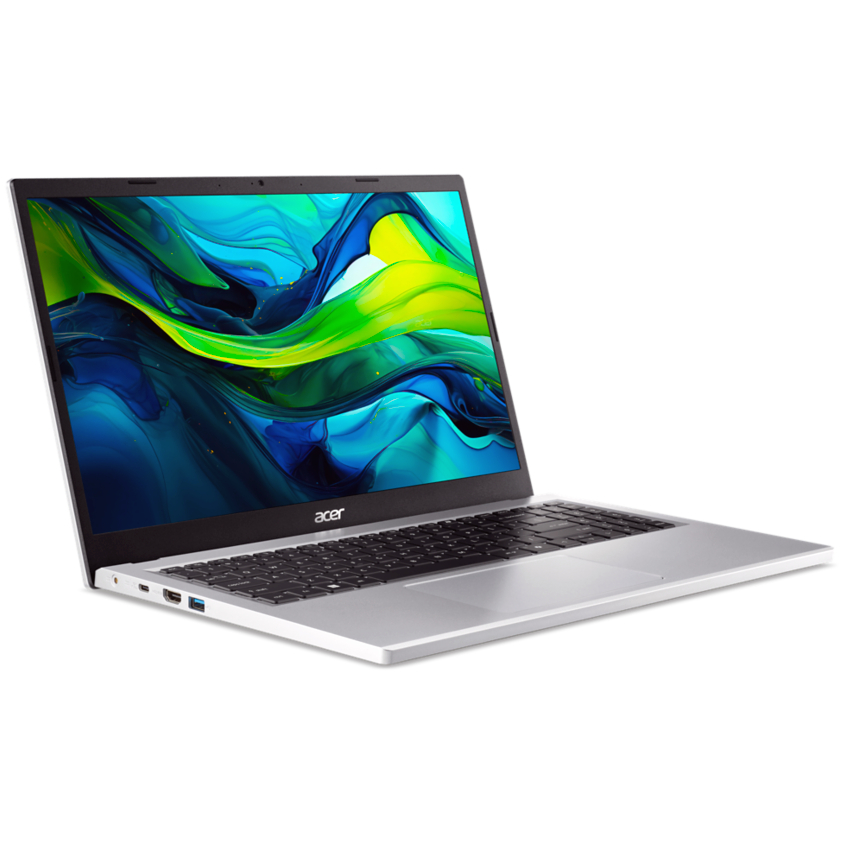
The Acer Aspire Go 15 is a great laptop for students on a tight budget since it delivers a solid 1080p display, a comfy keyboard and good battery life for $300. It's not fast or powerful, but it's fine for writing papers or doing research online.
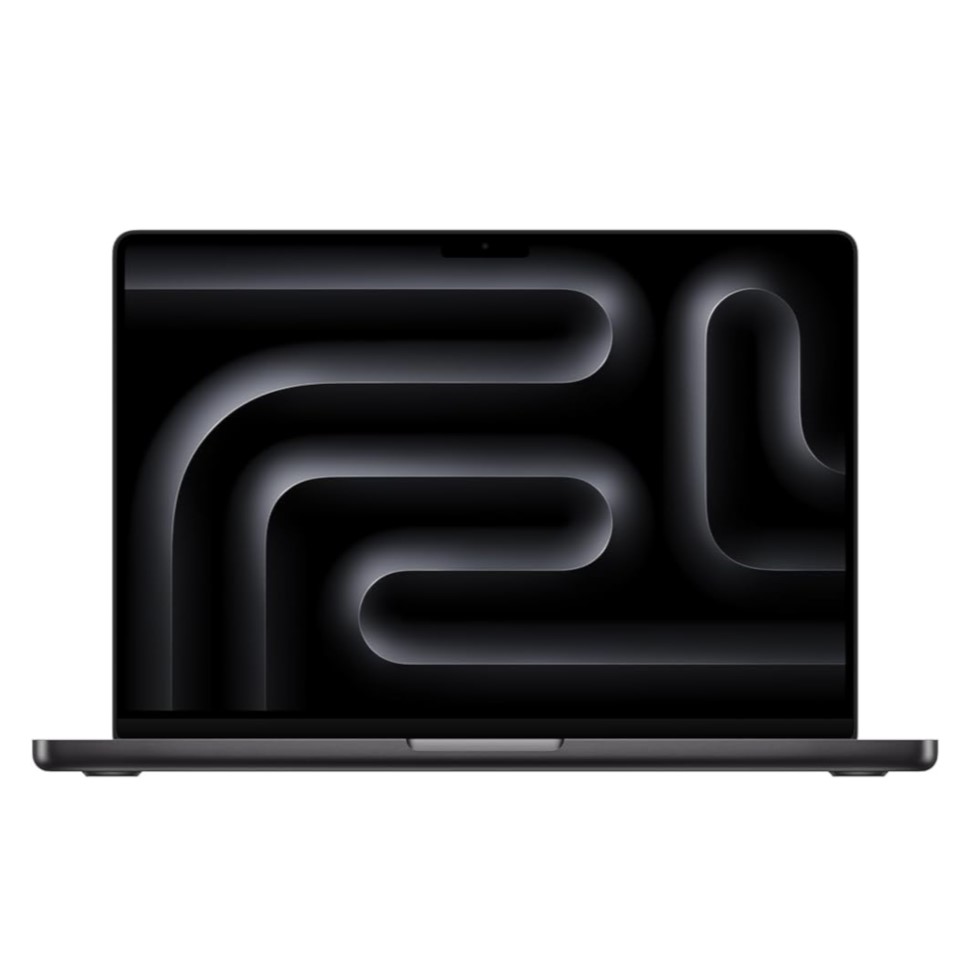
The MacBook Pro M3 is the best laptop for college students that do creative work like video editing or graphic design. The new M3 chip is faster and more powerful but you also get a bright display and 17 hours of battery life based on our tests. The MacBook Pro M3 even comes in a new Space Black finish.
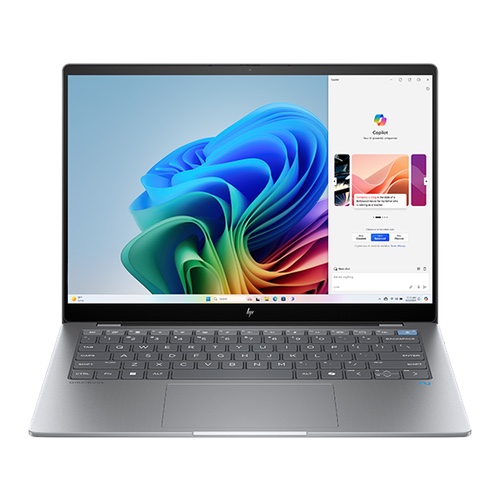
Microsoft's big move to using Snapdragon X Elite for has allowed HP to make one of the best Windows college laptops. This is a performant powerhouse with power and battery life that rivals the M3 MacBook Air!
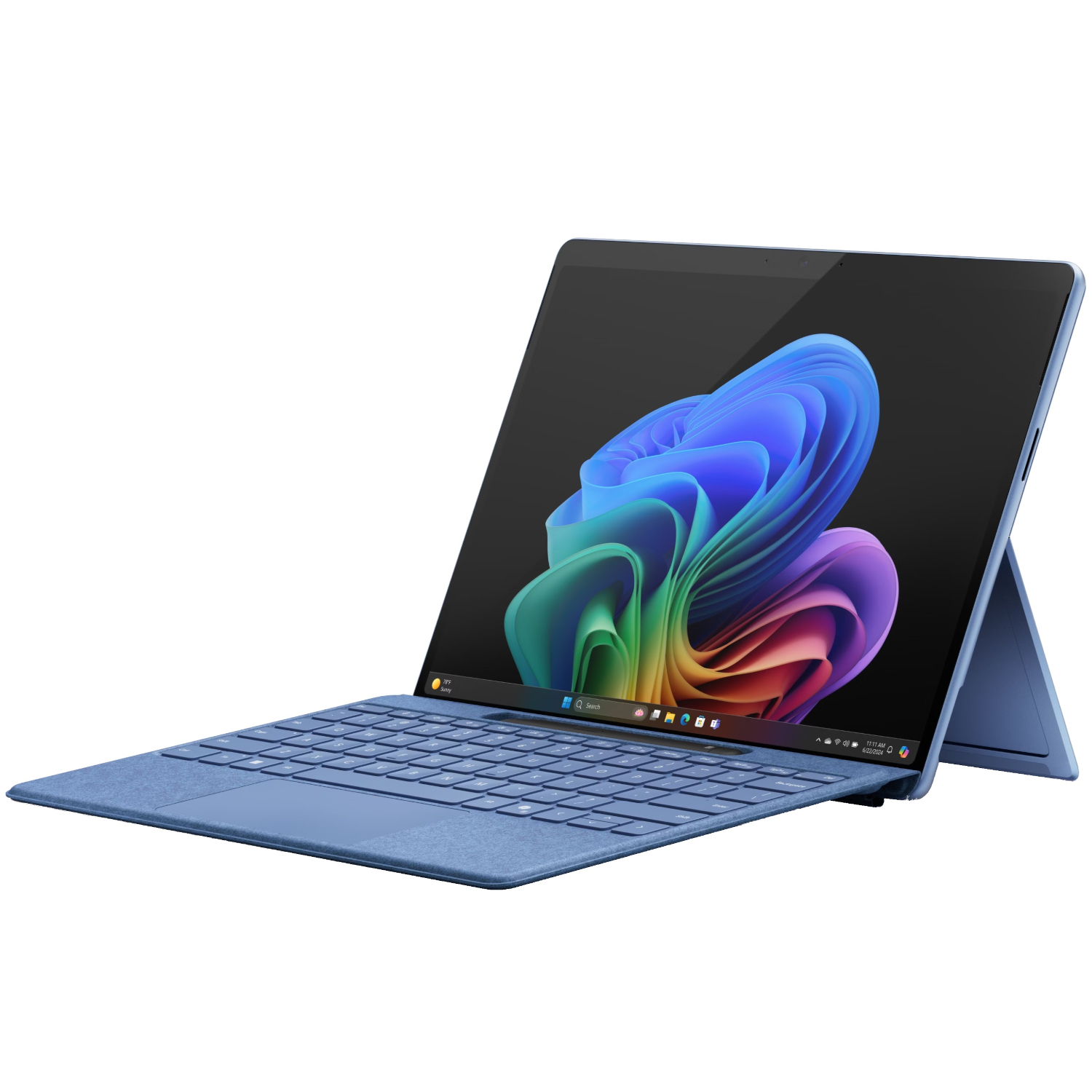
When it comes to that perfect blend of laptop and tablet for students, nothing comes close to the Surface Pro 11. Thanks to important keyboard cover upgrades, a drop dead gorgeous OLED touchscreen, and Snapdragon X Plus or Elite chips giving you peak performance and power efficiency.
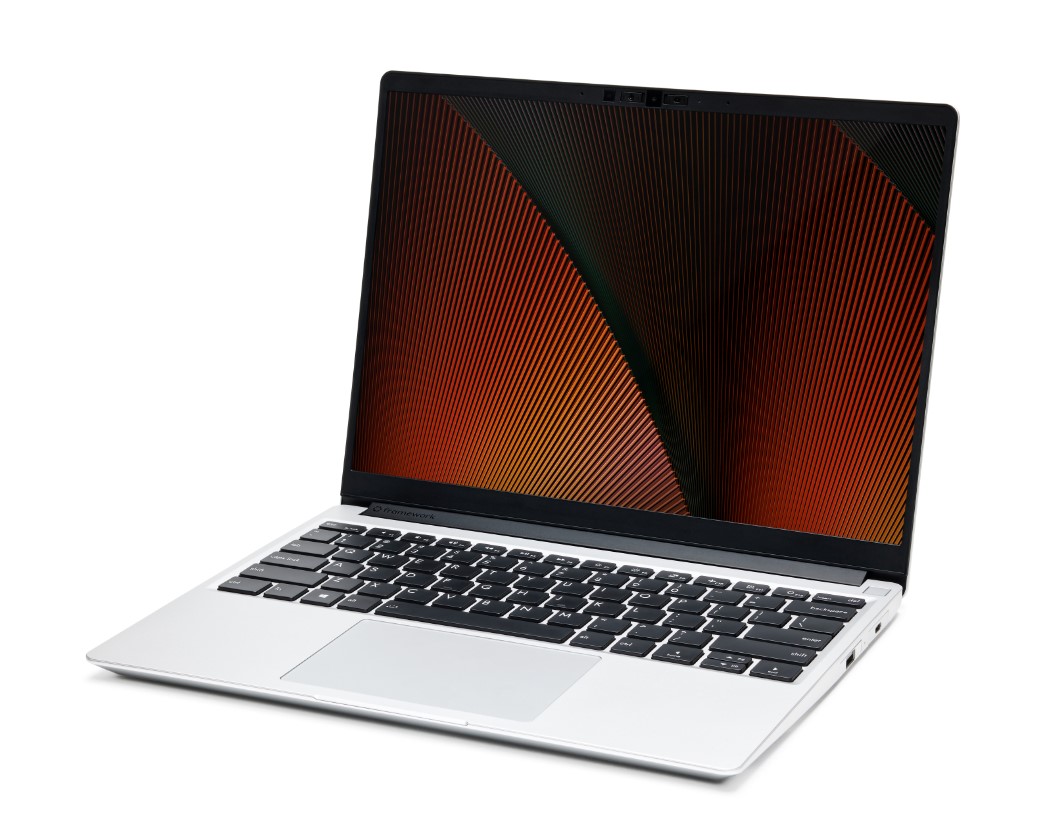
The Framework Laptop is a truly unique Windows ultraportable that's more repairable and upgradeable than any other. It's designed to be easy to upgrade and repair, making it a great investment for tech-friendly (or accident-prone) students.
Load the next 2 laptops...
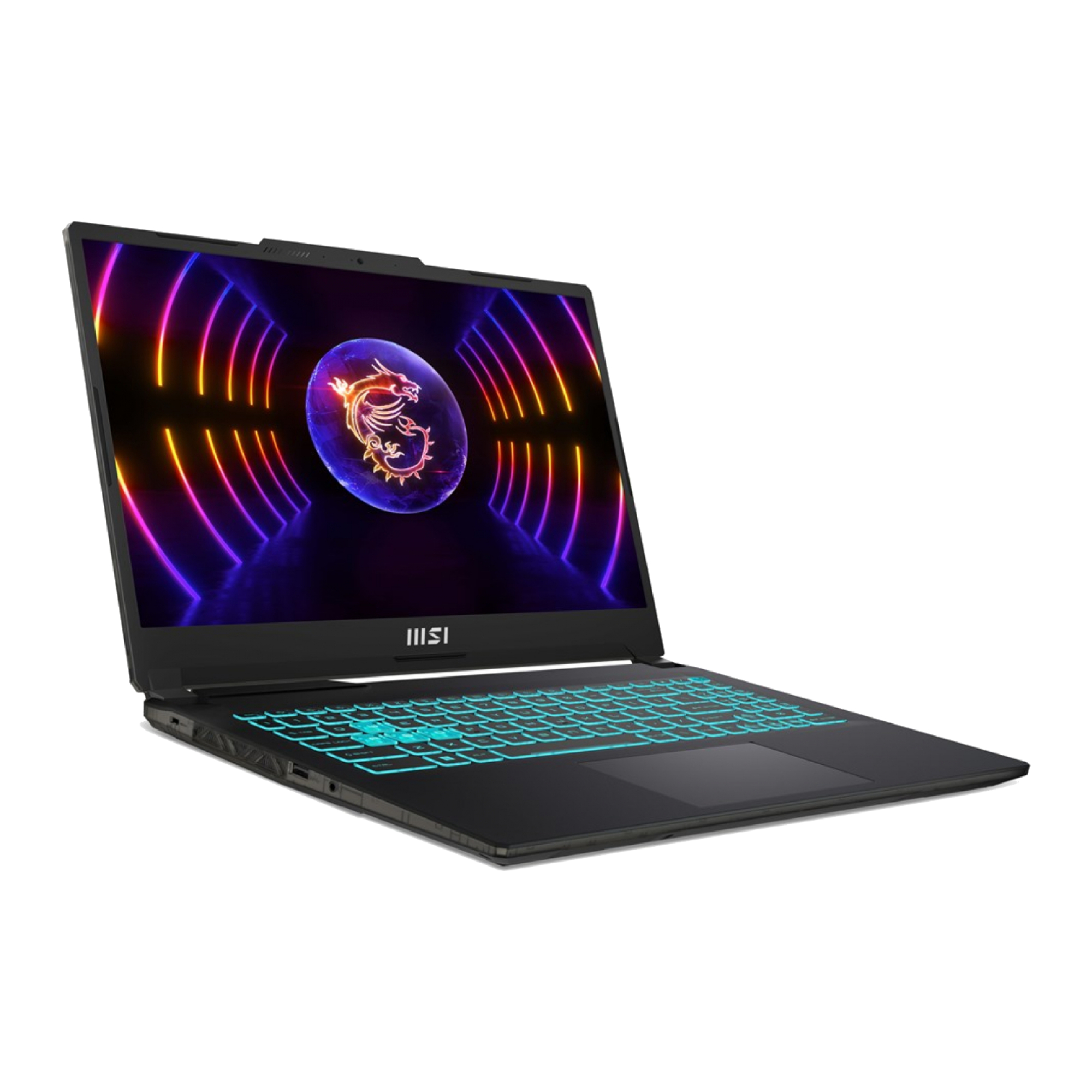
The MSI Cyborg 15 is the gaming laptop we recommend to students most often because it gives you Nvidia GeForce RTX 4050 power for under $1,000. The webcam isn't great and the battery life is terrible, but it's great for gaming in the dorm.
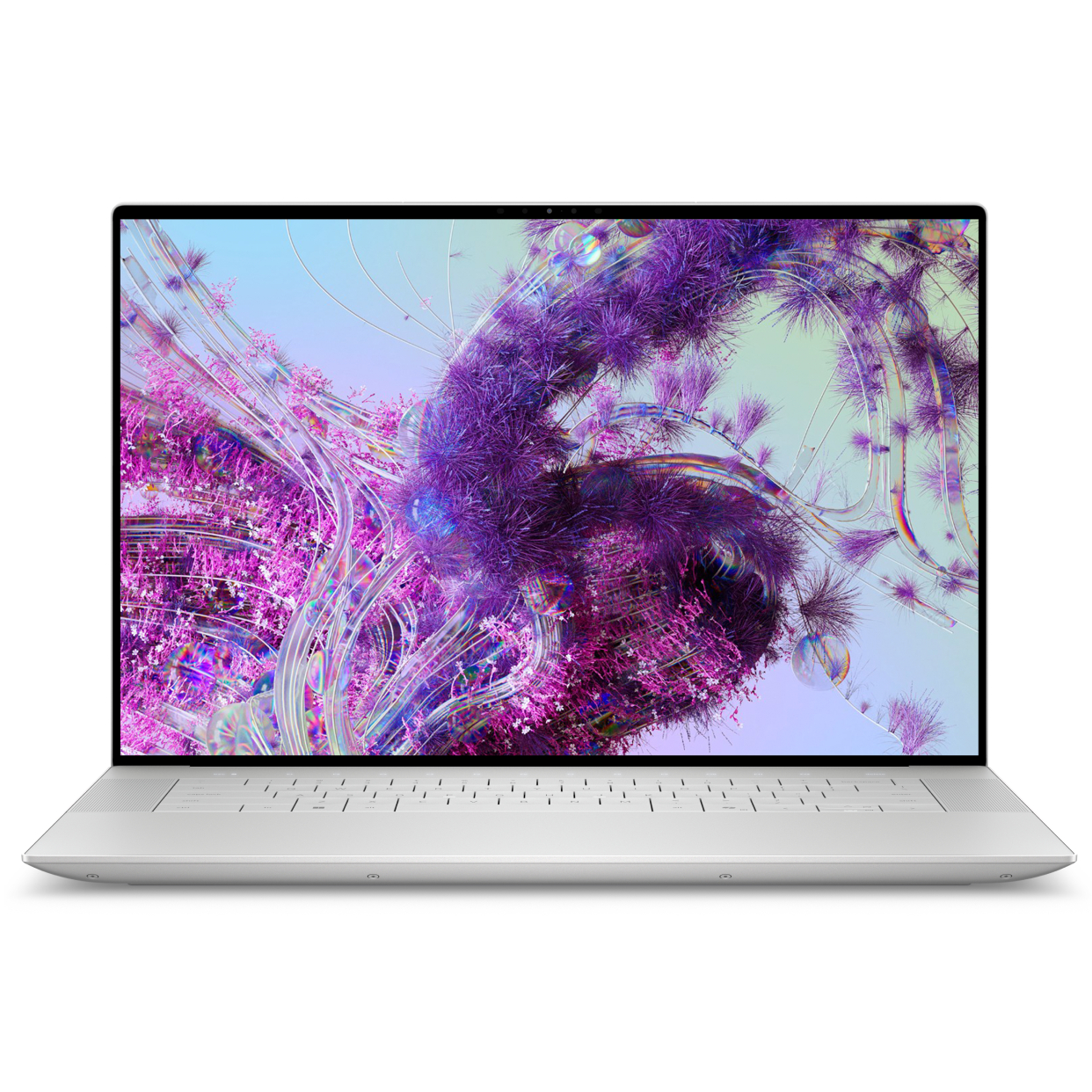
The Dell XPS 16 is what we recommend for engineering students because it has the muscle to do heavy-duty coding or editing, but it's also svelte and portable enough to carry to the lab, class or the coffee shop.

I've been reviewing laptops for over four years, so I know a thing or two about what makes for a great buy for students heading off to college. Picking the right one for your studies is a huge decision, as it will be your daily driver for the next few years and you need that perfect mix of performance, power efficiency and reliability. I can help you find that!
The best college laptops you can buy right now
Why you can trust Tom's Guide
The best overall
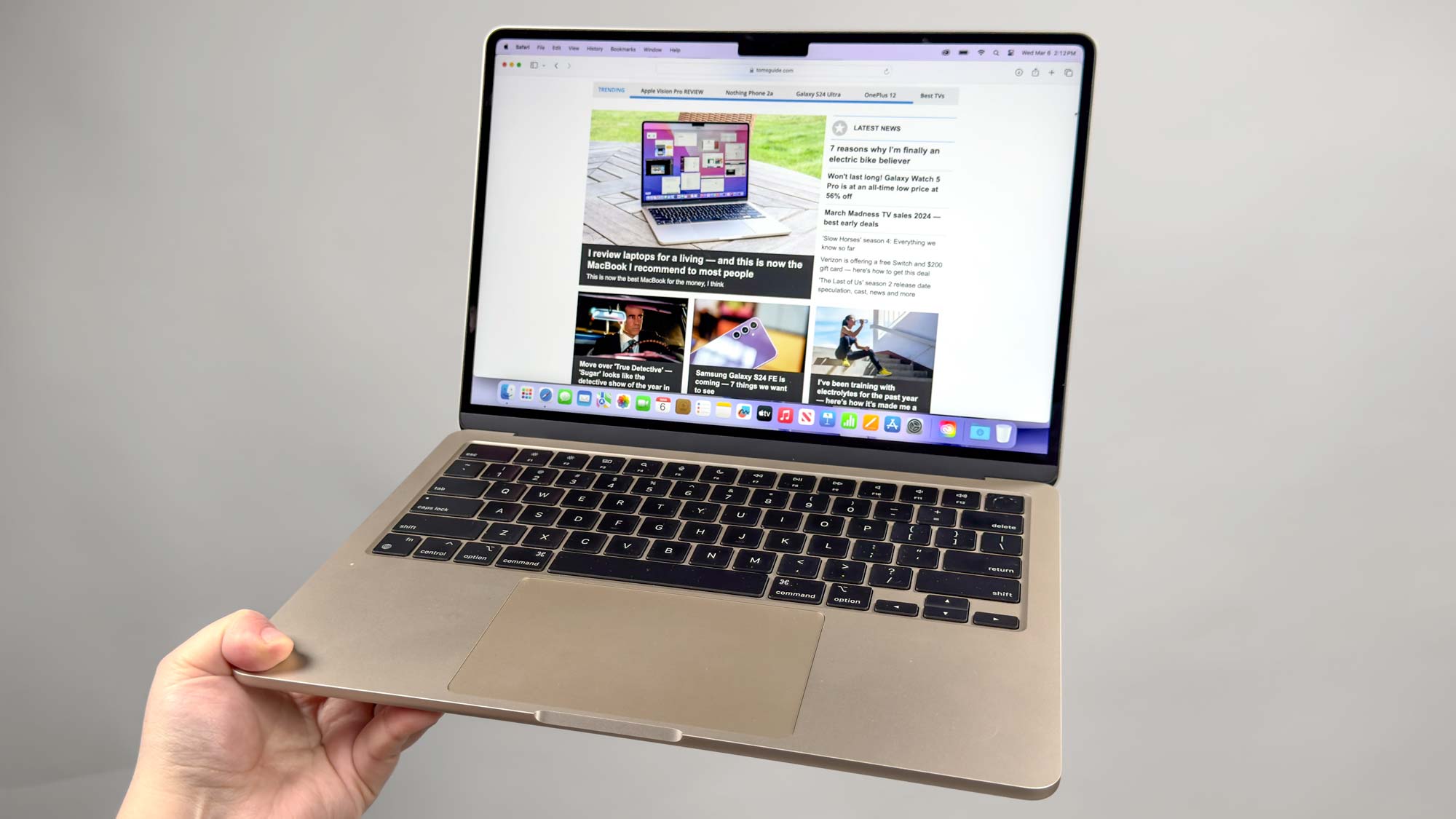

Specifications
Reasons to buy
Reasons to avoid
There's a reason why we call the M3 MacBook Air "a small wonder." On the face of it, this is merely a spec bump from last year's M2 MacBook Air, but in use, it is so much more than that.
It all comes down to three key things: design, performance and battery life. Starting with the build quality, this aluminum unibody inspires confidence in its durability and reliability, while also being super slim at just 0.44 inches and light at 2.7 pounds. Plus, with a gorgeously utilitarian aesthetic, you're sure to be the coolest kid on campus!
Next, the M3 chip is a mini wonder of a chipset that drastically improves app performance, graphical capabilities and even enables speedy AI thanks to its beefed up Neural Engine. Whether you're multitasking between Chrome and Pages with Apple Music in the back, or straining it with a Premiere Pro 4K edit, the Air can do it all (especially with that bright and color accurate Liquid Retina display).
| Header Cell - Column 0 | MacBook Air 13-inch M3 | MacBook Air 15-inch M2 | Dell XPS 14 (2024) |
|---|---|---|---|
| Geekbench 6 (single-core) | 3,082 | 2,613 | 2,398 |
| Geekbench 6 (multi-core) | 12,087 | 9,993 | 12,939 |
| Handbrake | 7:19 | 7:46 | 6:20 |
| Photoshop | 8,583 / 12.4 mins | 7,465 / 13.9 mins | 6,045 / 21.6 mins |
| Premiere Pro | 3,621 / 7.8 mins | 3,170 / 8.7 mins | 4,918 / 7.3 mins |
And finally, if your college experience is anything like mine was, you'll be running between classes without access to a power outlet. Well, in our own intense battery life testing, we saw the 13-inch M3 MacBook Air last 15 hours and 13 minutes. That's "worry-free battery life" territory!
Top it all off with the slickness of macOS for getting work done by day and playing games/binge watching by night, and you've got what I believe is the best laptop for most college students.
Read our full Apple MacBook Air M3 (2024) review.
The best value
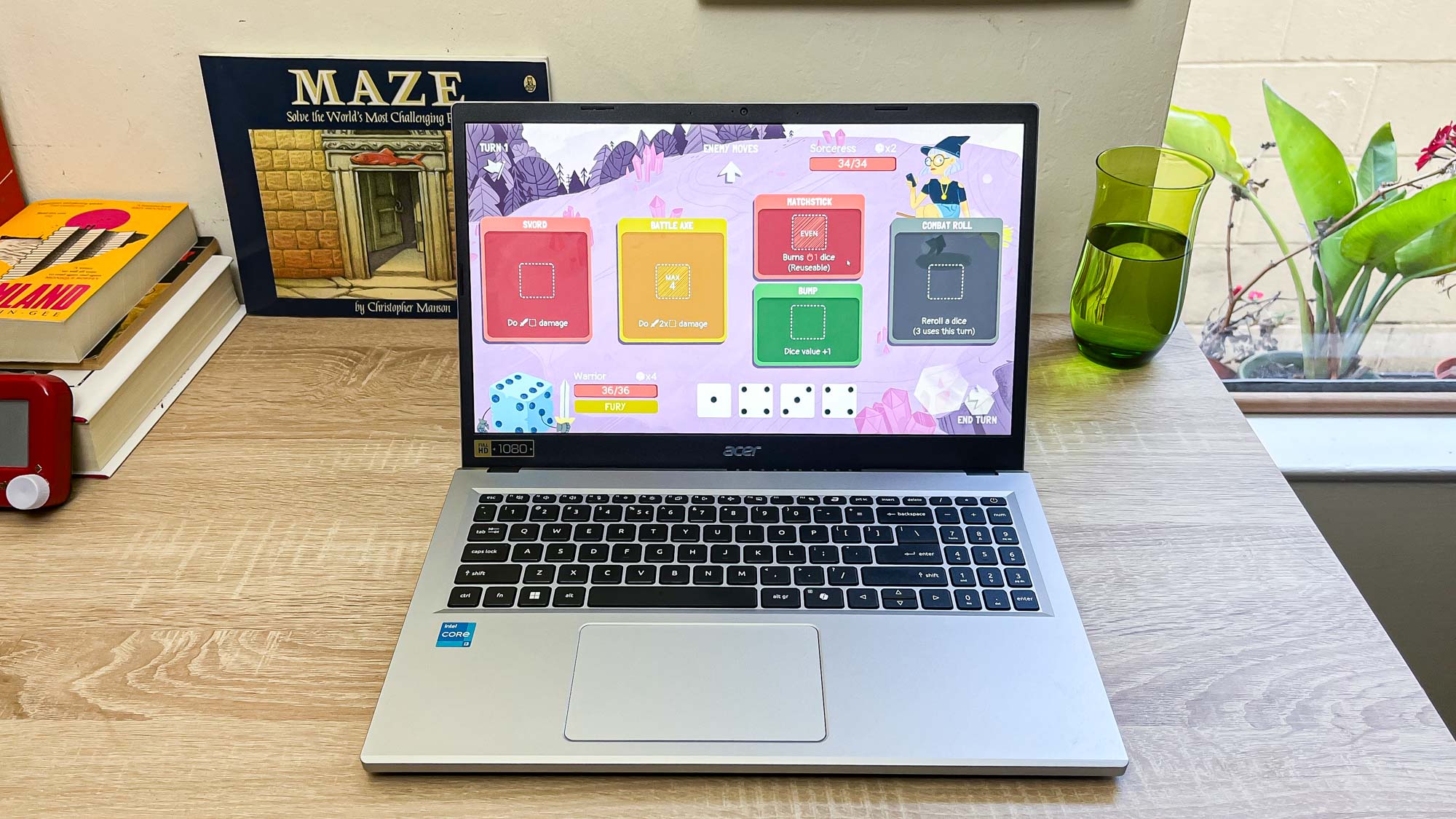

Specifications
Reasons to buy
Reasons to avoid
The Acer Aspire Go 15 isn't amazing, but it doesn't have to be when the MSRP is $300. At that price, you can make peace with the fact that the Go 15's low-powered CPU and paltry complement of 8GB RAM and 128GB of storage aren't good for much else besides browsing the web, writing and editing, and maybe some very light gaming.
But that's fine for students who just need a cheap laptop for doing research, writing papers and emailing professors. What the Acer Aspire Go 15 lacks in features or charm it more than makes up for in utility, as it offers 10 hours of (tested) battery life and a keyboard that's surprisingly comfy to type on. And while its 15.6-inch 1080p screen looks a bit washed-out and won't make colors pop, it's more than good enough for working with documents.
The Acer Aspire Go 15 doesn't look, feel or sound as fancy as the other laptops on this list, but it's a serviceable workhorse with a $299 price tag, making it the laptop we recommend most often to students and others seeking great value on a budget.
Read our full Acer Aspire Go 15 review.
The best for creatives
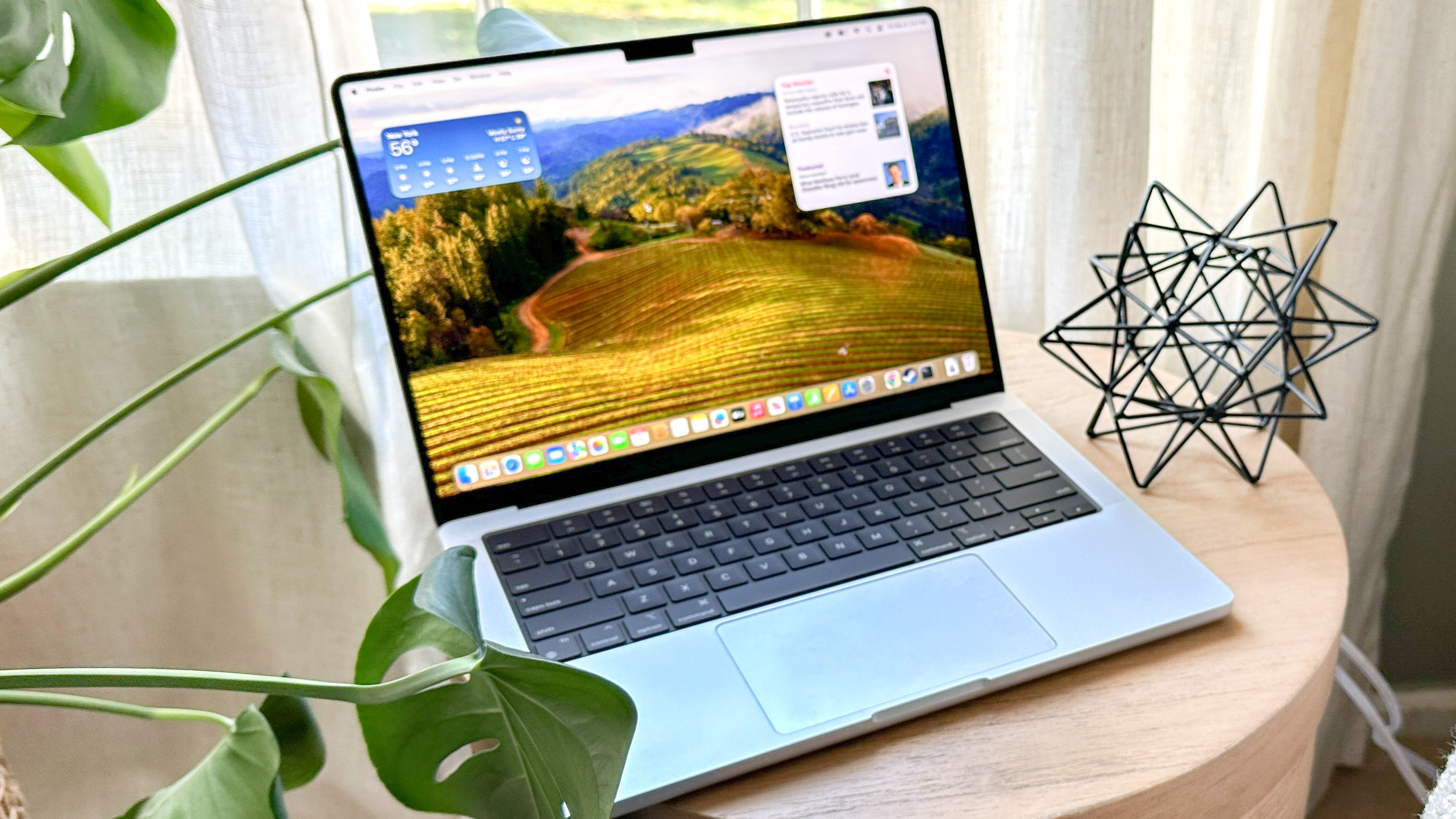

Specifications
Reasons to buy
Reasons to avoid
Out of the three MacBook Pros on offer, the 14-inch Pro with the standard M3 chip is the best for providing the right amount of horsepower for nailing that creative college degree. And even better, it's regularly discounted at up to $150 off.
Of course, with a saving like that, you could opt for upping that performance with something like the M3 Pro MacBook Pro, and get that additional Thunderbolt 4 port in the process. But for what you may be doing in 4K video editing, graphic design, music production or photography, you really don't need that additional oomph (as is clear from how quick it can roll through our Photoshop benchmark).
| Laptop | Handbrake (time transcoding 4K video to 1080p in mm:ss) | Photoshop |
|---|---|---|
| MacBook Pro 14-inch (M3 Pro) | 04:34 | 1120 / 4:06 |
| MacBook Pro 14-inch (M2 Pro) | 05:03 | 934 / 4:40 |
| MacBook Pro 14-inch (M3) | 05:37 | 877 / 4:53 |
| MacBook Pro 16-inch (M3 Max) | 02:34 | 1443 / 3:29 |
So that's a big fat "check" on creative performance. As for having confidence in color accuracy, the MacBook Pro features a 14-inch, mini-LED Liquid Retina XDR display and in our lab tests, we saw that it's display is even brighter than its predecessor. Not only that, but with a Delta-E color accuracy score of 0.11 (one of the lowest I've ever seen, and lower is better), you will feel reassured that what you're looking at is true to life before sending it for print.
Add in the juicy extras that came with killing the 13-inch Pro and opting to give everyone this fresh 14-inch chassis — such as a full-size SD card slot, HDMI port, amazing keyboard and a battery life that exceeds 17 hours, and I think we've got a creative winner on our hands.
Read our full MacBook Pro 14-inch (M3, 2023) review.
The best Windows laptop for students
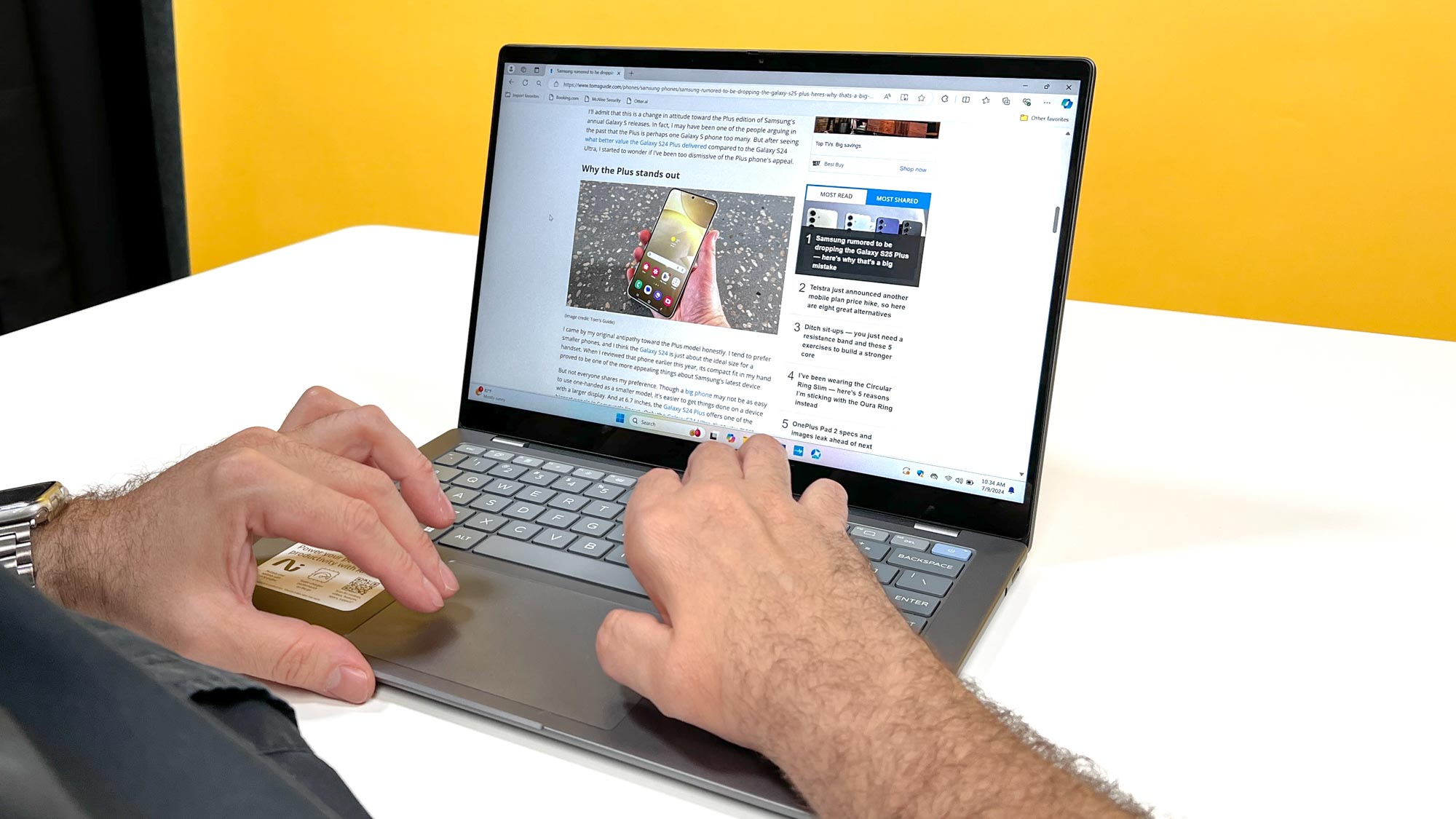

Specifications
Reasons to buy
Reasons to avoid
With the dawn of Copilot+ PCs, Windows laptops are starting to become amazing options for students, and the HP OmniBook X leads the charge on this in terms of face-melting performance and astonishing battery life — all in a durable (and gorgeous) chassis with a fantastic typing experience.
This all comes down to Microsoft shedding the skin of its x86 past and adopting an Arm architecture with Snapdragon X Elite chips. You don't really need to know the differences (if you're curious, I go into a ton of detail at the beginning of my Asus Zenbook S 16 review). But all you need to know is that the move to Snapdragon silicon has been the Windows 11 equivalent of when Apple ditched Intel and created its own chips. The impact on performance and battery life has been mind blowing.
| Header Cell - Column 0 | HP OmniBook X | MacBook Air 13-inch M3 |
|---|---|---|
| Geekbench 6 (single-core) | 2,347 | 3,082 |
| Geekbench 6 (multi-core) | 12,861 | 12,087 |
| Battery life test (hh:mm) | 16:22 | 15:10 |
Top all of that up with a beautiful lightweight aluminum design (2.9 pounds) that ensures durability, and a lovely keyboard/touchpad experience that you'll really enjoy typing on for hours on end, and you've got one of the MVPs of Microsoft's new Copilot+ PC movement.
So whether you're a Windows lover, or you've found out that your college's IT infrastructure leans more heavily towards you making the most out of it with a Microsoft machine, the OmniBook X is one of the best to do it.
Read our full HP OmniBook X review.
The best 2-in-1
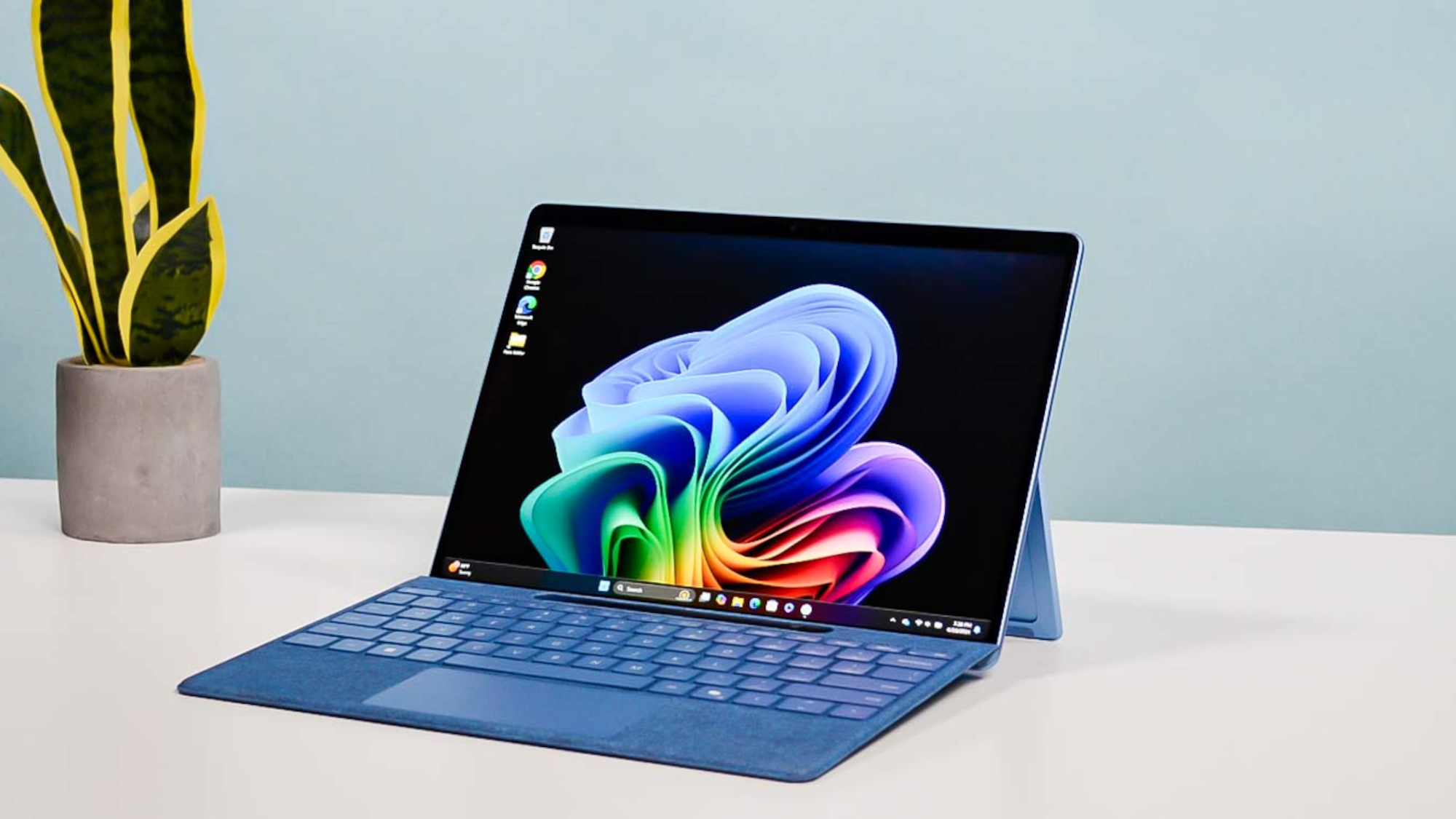

Specifications
Reasons to buy
Reasons to avoid
It's taken a while, but the Microsoft Surface Pro 11 has finally nailed the 2-in-1 formula — making this a perfect hybrid for college students. Turns out the secret sauce to achieving greatness is Snapdragon X.
As you saw with the HP OmniBook X, the use of Qualcomm's chip has dramatically sped up the system, with particular props to transcoding media (important for video editing) and its multitasking performance. Meanwhile, the OLED display (optional in more expensive models) is a flash flood of gorgeous color and aids the battery life too.
| Header Cell - Column 0 | Microsoft Surface Pro 11 | MacBook Air 13-inch M3 |
|---|---|---|
| Geekbench 6 (single-core) | 2,813 | 3,082 |
| Geekbench 6 (multi-core) | 14,432 | 12,087 |
| Handbrake (mins:seconds) | 5:24 | 7:40 |
| Battery life (hh:mm) | 12:10 | 15:10 |
All of this has been packed into that same beautiful design that is just 0.37 inches thick and weighs a mere 1.97 pounds. Plus, with critical improvements made to the typing experience on that keyboard cover (including a wireless connectivity so you can disconnect it from the Surface Pro and keep on typing), this is a fantastic choice for the next step in your education.
Of course, moving to Arm means that certain apps may be incompatible, but the core set you need (or want) are supported for your studies and keeping yourself entertained. This includes Chrome, Office, Photoshop and much more.
Read our full Microsoft Surface Pro 11 review.
The best for DIYers
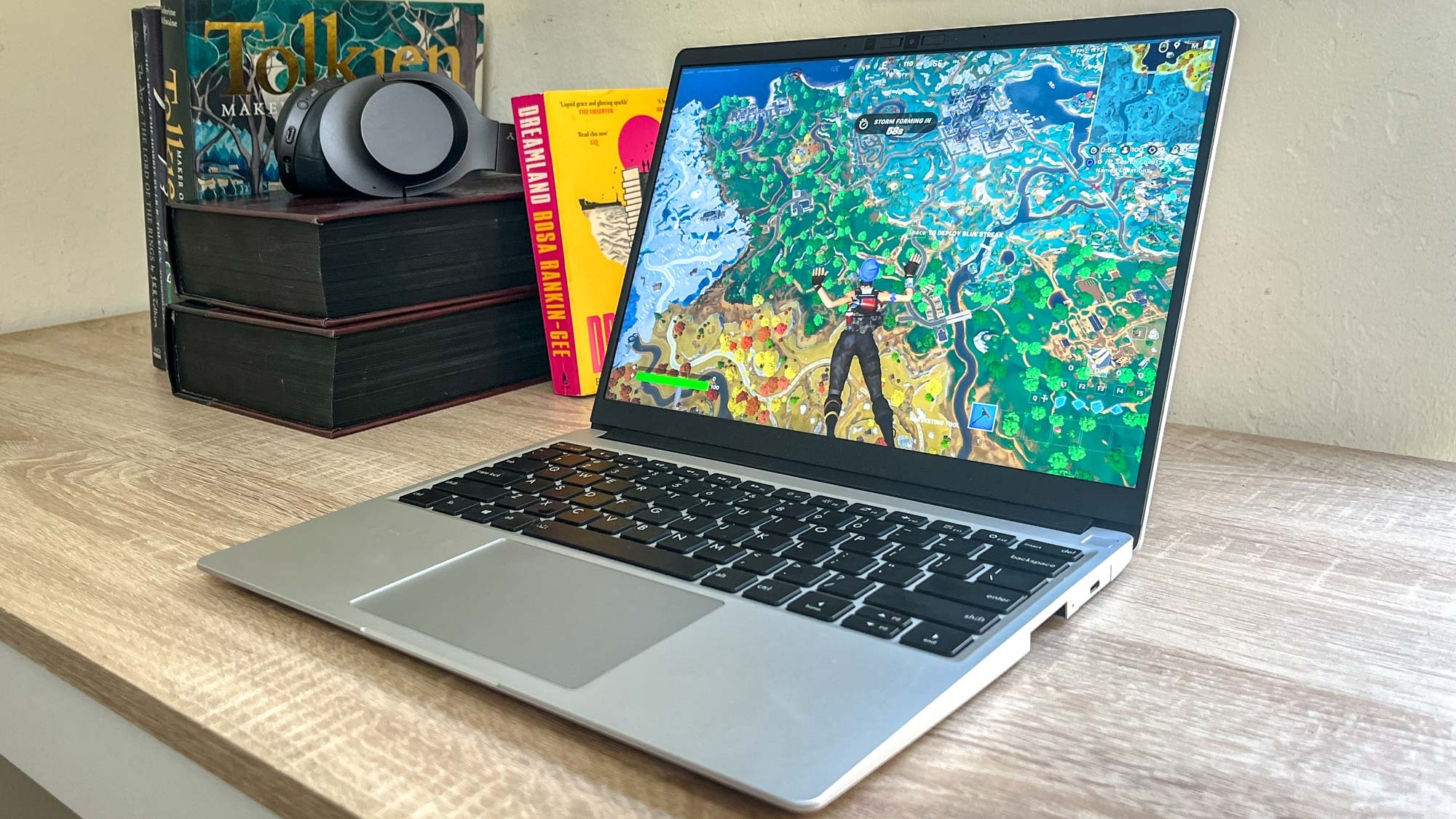

Specifications
Reasons to buy
Reasons to avoid
Upgradeability is not necessarily something people think about when it comes to a good college laptop, but it makes a lot of sense, and the Framework Laptop is my top pick for this for its impressive modularity.
Put simply, you can customize, repair and upgrade every component to an unprecedented degree — all while remaining affordable and ultraportable. And when it comes to replacing key components like the screen and mainboard, all you need is the screwdriver that Framework ships with it.
It's not for everyone, but if you're the DIY type and love the idea of being able to tinker with your laptop's innards this is the best laptop for you. The Framework laptop is currently only available for purchase from the Framework website, and the price tag starts at around $1k — though you can pay even less for the DIY Edition if you're willing to assemble your laptop yourself and provide your own memory, storage, operating system, and Wi-Fi card. It's a great ultraportable that doubles as a learning device you can take apart and fix or upgrade yourself, and for some students it's perfect.
Read our full Framework Laptop review.
The best gaming laptop
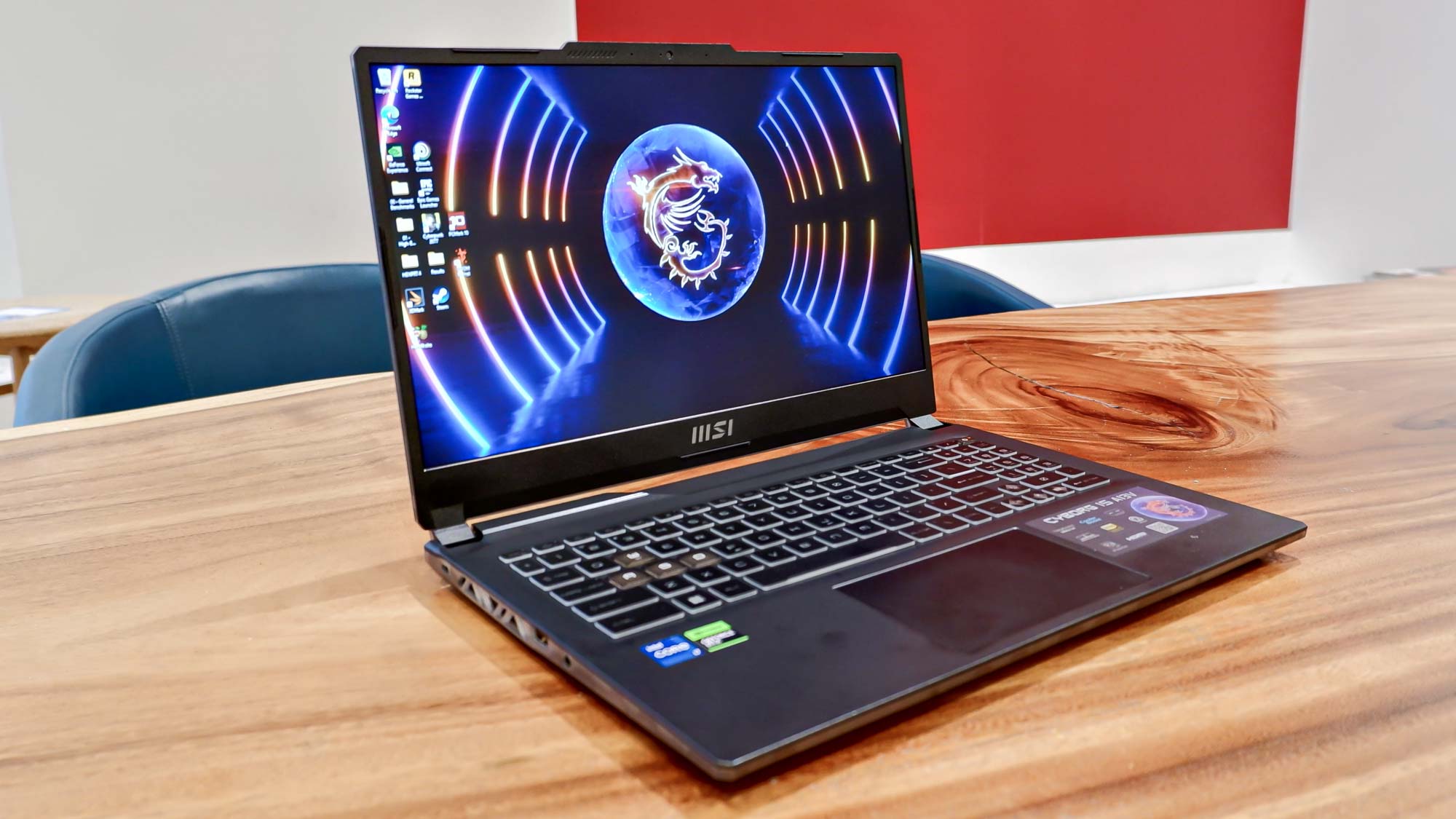
Specifications
Reasons to buy
Reasons to avoid
OK, so I can imagine some confused faces here — why am I recommending a gaming laptop for college students? Well, as I'll explain in handpicking the MSI Cyborg 15, you get so much more than you think.
It starts with the ability to handle design-intensive college work well with its dedicated GPU. This will allow it to handle beefy animation tasks impressively well, and thanks to Nvidia's AI toolbox of features, you can be sure of strong horsepower.
And also, there is that gaming performance. Maybe you've got a dense Steam library that you want to play while in your dorm room? This will handle gaming admirably at 1080p, and that RTX 4050 unlocks the combo breaker of gaming and AI that is DLSS 3.5 to give you impressive frame rates.
| Header Cell - Column 0 | MSI Cyborg 15 | Acer Nitro 5 | MSI Bravo 15 |
|---|---|---|---|
| Assassin’s Creed Valhalla | 63 | 44 | 32 |
| Borderlands 3 | 53 | 45 | 31 |
| Dirt 5 | 57 | 51 | 30 |
| Far Cry 6 | 66 | 45 | 48 |
Of course, it's a gaming laptop, so stamina is not its forte. Only go for this if you can be sure of power outlet availability, and if you're feeling confident whipping out an in-your-face gaming laptop in class without judgemental looks.
But for what you get at a price below $1,000, if you can forgive battery life, this could be the all-in-one productivity and gaming machine that will carry you through college easily.
Read our full MSI Cyborg 15 review.
The best laptop for engineering students
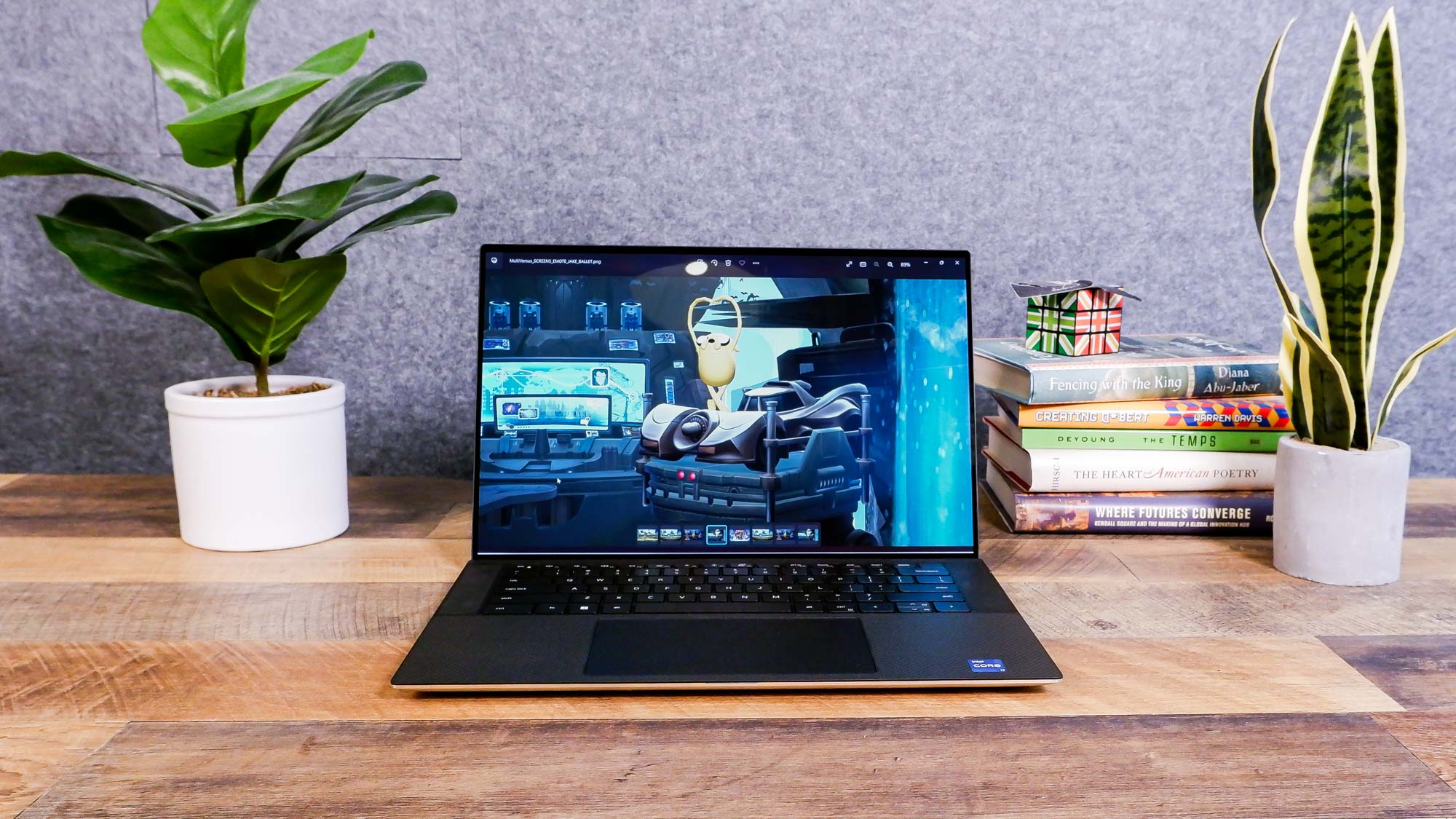
Specifications
Reasons to buy
Reasons to avoid
I like to recommend the Dell XPS 16 to engineering students because (if it matches the requirements of your program!) it's a nice blend of power, portability and a big screen for staying on top of your work without eye strain.
I know because I reviewed this Windows 11 laptop, and I really love the 4K OLED touchscreen upgrade because it makes everything you do on the laptop look nicer. But students on a budget need not strain themselves to get it: Dell's basic LCD panel that comes standard on this machine is more than good enough for school.
But please do check your school's requirements about what laptop to bring before pulling the trigger, and make sure you get one that meets your needs. That's another nice thing about the XPS 16: it's highly customizable, so you have a lot of room for configuration. If you plan to do a lot of demanding simulations, coding or other such work I recommend upgrading to a discrete Nvidia GeForce RTX laptop GPU as well.
Read our full Dell XPS 16 review.
Battery benchmarks: comparison
Battery life is a key concern for students since you don't want a laptop dying in the middle of class. With that in mind we've collected all the results from our battery tests of these laptops, and I've organized them below in a brief chart.
As you can see, Apple's MacBook Pro is the current clear winner of terms of long battery life.
| Laptop | Battery life (tested) |
| M3 MacBook Pro | 17:25 |
| HP Omnibook X | 16:22 |
| M3 MacBook Air (13-inch) | 15:10 |
| Microsoft Surface Pro 11 | 12:10 |
| Framework Laptop | 10:17 |
| Acer Aspire Go 15 | 10:05 |
| MSI Cyborg 15 | 05:05 |
| Dell XPS 16 | 11:15 |
How to choose the best laptop for you
How to choose the best laptop for you
Performance: If you're going to be spending years studying, you're going to need a computer with enough power to handle anything your teachers throw at you. We recommend at least a new mid-range CPU (Intel Core i5 or AMD Ryzen 5) and at least 8 GB of RAM, though if you can afford to spend more on on a laptop with better specs it will pay off in the long run.
Graphics and gaming: Most gaming laptops come with discrete graphics cards so they can run the latest games well, but the same card can be equally vital to engineering students who will be using CAD (computer-assisted design) and 3D analysis programs. These kinds of applications really benefit from the power of a good GPU, so if you're expecting to do any graphics or 3D work it's a good idea to invest in a laptop with a discrete Nvidia or AMD graphics card.
Operating system: Laptops typically come in three flavors: Windows (most mainstream PCs), macOS (MacBooks) and Chrome OS (Chromebooks). Chrome OS isn't good for much besides web surfing, file management, and light computing, so a Chromebook isn't a great choice for serious schoolwork. However, a crafty student could install Linux on a high-powered Chromebook to turn it into a decent laptop for engineering work.
Many engineering students spend a lot of time working with specialized or self-developed software, so Windows is often preferable over macOS because it throws up fewer roadblocks when using such tools. However, even Windows can sometimes get in the way of serious engineering work, which is why many engineering students get Windows laptops and install Linux on them so they can dual-boot into either operating system.
As mentioned above, when making your buying decision be sure to consult your teachers and/or the engineering department at your school for more specific advice on what you'll need for your studies. Whichever system you decide on, it's a good idea to pair it with the best mouse for your particular work situation.
How we tested these laptops
How we test the best laptops for students
To find the best laptops we run every machine through a rigorous suite of benchmarks and real-world tests to gauge how it will perform during everyday use.
We measure the average brightness and color quality of each laptop's display using our in-house light meter and colorimeter. For general performance, we run our machines through tests that include Geekbench 6 (CPU performance), as well as various 3DMark tests to measure graphics capabilities. We also run a file transfer test to measure how fast a machine's hard drive is, and a custom battery test that has the machine browse the internet over Wi-Fi until it runs out of juice.
Plus, we run the graphics benchmark test in Sid Meier's Civilization VI: Gathering Storm to get a sense of how well a laptop can handle basic games. When testing dedicated gaming laptops, we run benchmarks for a number of games such as Shadow of the Tomb Raider and Far Cry: New Dawn.
Sign up to get the BEST of Tom's Guide direct to your inbox.
Get instant access to breaking news, the hottest reviews, great deals and helpful tips.

Jason brings a decade of tech and gaming journalism experience to his role as a Managing Editor of Computing at Tom's Guide. He has previously written for Laptop Mag, Tom's Hardware, Kotaku, Stuff and BBC Science Focus. In his spare time, you'll find Jason looking for good dogs to pet or thinking about eating pizza if he isn't already.
